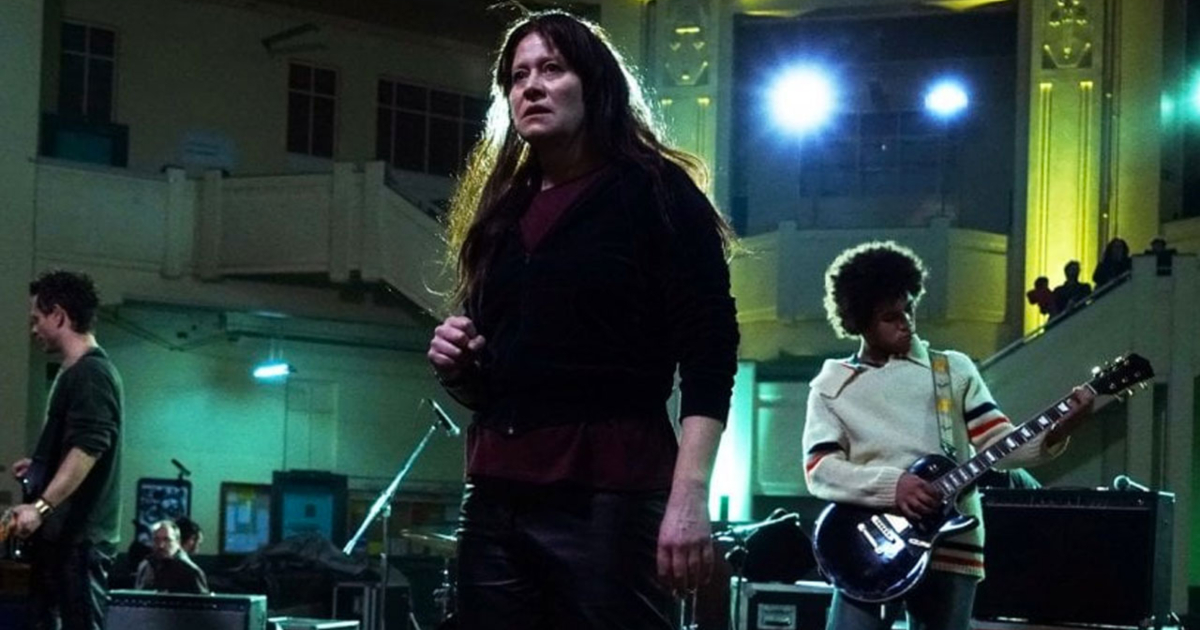
At their very best, the artist biopic, or any filmed biography for that matter, keeps its focus keen and incredibly specific. Where most films of this ilk fail is when they not only set their ambitious intellectually too high (trying to decipher something specific about the time period from whence the artist rose) but their narrative too broad as well. The worst of these films, instead of trying to glean some grand insight out of a brief moment in an artist’s life, try and be an all-encompassing recounting of a person’s life, a glorified timeline if you will.
Thankfully, Nico, 1988 isn’t that type of film.
Instead, what writer/director Susanna Nicchiarelli tasks herself with bringing to life are the final days in the life of one of experimental rock music’s most enigmatic and influential artists. As the title hints, Nico, 1988 is like a magazine profile, focusing squarely on iconic singer Nico, as she makes her way across Europe on a tour in support of a new album. Fully in the wake of her time alongside The Velvet Underground, now 20 years on from those groundbreaking works, Nico is a seemingly abrasive presence, shutting interviews all but completely down at the sheer mention of Lou Reed or his band of misfits.
From the very outset, in what is one of the great uses of narrative ellipses in a film in 2018, one watches as a young child watching Berlin burn in the aftermath of WWII, only to evolve into an Andy Warhol acolyte and ultimately the troubled middle-aged woman we learn is Nico herself. It’s a bravura, inspired opening prologue, setting the stage for what is a deeply moving and human look at an artist learning to shake not just the demons that haunt her, but the art that would make her an icon.
As the picture progresses, the narrative becomes more legato, flowing freely from moment to moment without much care for narrative weight or dramatic impact. More or less a travelogue with a sense of dread that seems to hang over each and every frame, made manifest by the impactful washed out photography from cinematographer Crystel Fournier, Nico, 1988 finds Christa Paffgen aka Nico on the precipice of a major breakthrough. Between promoting her new solo record, Paffgen attempts to rekindle her relationship with her estranged son (played by Sandor Funtek), while trying not to collapse under the collective weight of a life lived.
The film stars beloved actress Trine Dyrholm and thrives being placed squarely on her shoulders. Her Paffgen/Nico shows her age, particularly due to the fact that much of the film is told through almost claustrophobic close-ups, and yet has a spirit that is at once melancholic and full of verve. Nico’s voice was and still very much is one of rock music’s most unmistakable, and Dyrholm’s own voice carries much of the same anger and charisma. Charisma is a major aspect of her performance, as she’s more or less monstrous to those closest to her (be it the “amateur junkies” she calls her bandmates or her incredibly sweet manager) yet never once allows the viewer to take their eyes off the screen. She’s not just a physical presence, her face speaking volumes all its own, but there’s a deep seeded anger and sadness to each word she utters. It’s genuinely one of the year’s great lead performances, breathing life into an artist hell-bent on breaking free from her past, while completely unable to ever truly embrace it.
From there, the supporting cast steps up as well, particularly John Gordon Sinclair, as her manager. His performance is decidedly more warm and open than his counterpart but plays perfectly when he shares the screen with her. Their chemistry is brimming with the closest this film gets to warmth, with Sinclair’s manager character playing like a guardian angel for the aging songstress, fueled not only by an admiration for her work but also a deep well of love and fondness for the woman, despite her flaws. This is a much-needed burst of humanity in a film that’s otherwise ominous and brooding.
With a career primarily in shorts and documentaries, writer/director Susanna Nicchiarelli cements herself with this film as a genuine artist to keep an eye on. Again shooting much of the film in close up, there’s a richness to each frame, allowing her lead actress to fill each frame with her unending energy. A relatively static film directorially, the film instead focuses on the small moments, the glances and gestures that truly make up a life. There are some masterful sequences, however, specifically, a live performance that sees Paffgen begin with a very specific type of reservation, only to open herself up and bleed out into the world a stage performance par excellence. It’s a captivating break from the quiet nature of the film, and almost becomes an evolutionary moment for the film, watching as the entire tone and mood of the picture shift ever so wonderfully. Interspersed throughout, as well, are archival pieces primarily from her time at Warhol’s Factory extravaganza’s, but the film is at its most profound when it embraces the darkness of its selfish, angry lead and finds sympathy in that. Without that sympathy, this film would be nearly unwatchable, with its lead doing things like ripping her junkie son out of a sanitarium to bring him on the road, but there’s a desperation to make things right that feels both moving and ominous. It’s this tonal modulation that makes this one of the year’s biggest surprises.



